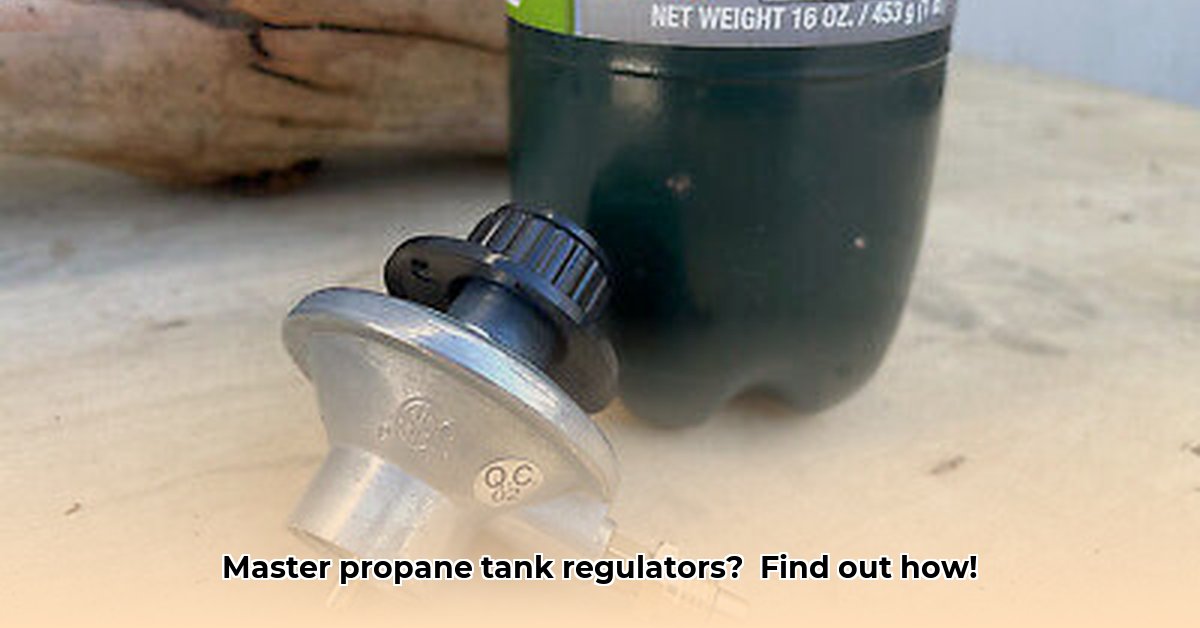
Choosing the Right 100 lb Propane Tank Regulator for Sustainable Farming
Selecting the appropriate propane tank regulator is crucial for safe and efficient propane use in sustainable agriculture. Tractor Supply offers various 100 lb propane tank regulators, each designed for specific applications. The choice depends heavily on the intended use; a greenhouse heater requires precise temperature control, unlike a more robust regulator needed for powering farm equipment. Always verify appliance pressure requirements to prevent inefficient operation or equipment damage. Carefully examine regulator labels indicating inlet/outlet pressures and flow rates for informed selection. For more information on seasonal hours, check Tractor Supply hours.
Safe Regulator Installation and Maintenance
Prioritizing safety is paramount when handling propane. Before connecting a new regulator, inspect both the propane tank and regulator for any damage (dents, cracks, rust). Never connect a regulator to a damaged tank. After a visual inspection, conduct a leak test using a soapy water solution on all connections. Bubbles indicate leaks, requiring immediate attention before further use. Strictly adhere to the manufacturer's instructions, as procedures vary depending on the regulator model. Regular maintenance, including periodic inspections for corrosion or damage, is crucial. Replace worn parts promptly. If problems arise (low pressure, leaky valves), consult a qualified professional instead of attempting DIY repairs.
Propane's Role in Sustainable Agriculture: A Complex Landscape
Integrating propane into sustainable farming necessitates careful consideration. While offering reliable power for greenhouse heating and equipment operation, its reliance on fossil fuels raises environmental concerns. This prompts the crucial question: Does propane align with your long-term sustainability goals? Exploring alternative energy sources like solar power or geothermal systems can mitigate the environmental impact. Reducing dependence on non-renewable resources is crucial for long-term sustainability.
Comparative Analysis: Propane vs. Alternatives in Sustainable Farming
This table summarizes the advantages and disadvantages of propane use in sustainable agriculture:
| Feature | Pros | Cons |
|---|---|---|
| Energy Source | Reliable, readily available, often cost-effective. | Non-renewable, contributes to greenhouse gas emissions and climate change. |
| Greenhouse Heating | Precise and efficient temperature control for optimal plant growth. | High energy consumption can offset environmental gains from sustainable farming practices. |
| Equipment Power | Powers various farm machinery, ensuring efficient operations. | Combustion produces air pollution, potentially harming surrounding ecosystems. |
| Infrastructure | Well-established distribution network, minimizing upfront infrastructure costs. | Subject to fluctuating market prices and potential supply chain disruptions. |
Does the readily available and seemingly cost-effective nature of propane outweigh its environmental impact? This is a key question for every sustainable farmer.
Building a Truly Sustainable Farm: A Holistic Approach
Transitioning to a completely sustainable farm usually involves more than simply choosing a single alternative energy source. A truly sustainable operation often necessitates diversifying energy supplies, potentially integrating renewable sources (solar, wind) alongside energy-efficient practices. While a complete shift to renewables requires investment and time, it's essential for long-term viability. Minimizing reliance on fossil fuels is a fundamental aspect of responsible environmental stewardship. Sustainable farming embraces a holistic approach, encompassing various factors beyond energy sources.
Comparing Propane and Geothermal Greenhouse Heating Costs: A Detailed Look
Key Takeaways:
- Geothermal systems provide substantial long-term cost savings and significantly reduced environmental impact compared to propane.
- Propane systems offer lower upfront costs and faster heat delivery, but operational expenses and carbon footprint are higher.
- The optimal choice depends on individual financial constraints and sustainability priorities.
- A thorough cost-benefit analysis, including regional energy prices and government incentives, ensures informed decisions.
- Understanding long-term implications, maintenance and lifespan, is essential.
This comparison highlights the need for a comprehensive cost-benefit analysis before choosing a heating system for your greenhouse. How can you assess the long-term viability of each option against your farm's specific needs and resources?
Propane Greenhouse Heating: A Quick Overview
Propane's ease of access and relatively low setup costs make it an attractive option for greenhouse heating. However, its environmental consequences, particularly greenhouse gas emissions, should not be overlooked. While the initial convenience and low investment are appealing, escalating operational costs over time demand careful consideration. This leads to the question: Is the initial cost savings of propane worth the long-term environmental and financial burdens?
Geothermal Greenhouse Heating: A Sustainable Investment
Geothermal heating systems, while requiring a larger initial investment, offer substantial long-term cost savings and significantly reduced environmental impact. The consistent warmth from the Earth translates into dramatically lower energy bills year after year. Although the initial investment is higher, the long-term savings and environmental benefits make geothermal a strong contender for sustainable greenhouse operations. Wouldn't the significant long-term cost savings justify the higher upfront outlay for many farms?
A Comparative Analysis: Propane vs. Geothermal
The following table compares propane and geothermal heating systems for greenhouses:
| Feature | Propane | Geothermal |
|---|---|---|
| Initial Cost | Low | High |
| Operating Costs | High | Low |
| Environmental Impact | High (Greenhouse gas emissions) | Low (Renewable energy source) |
| Lifespan | Relatively short | Very long (20-25 years) |
| Maintenance | Moderate | Low |
This data demonstrates a clear contrast between the two systems, emphasizing the need to carefully weigh short-term convenience against long-term sustainability.
Making Informed Decisions: Factors to Consider
Beyond initial costs, consider long-term operating expenses, maintenance, and system lifespan. Regional energy price fluctuations and available government incentives should also inform your decision. Thorough research, professional quotes, and realistic projections of energy costs are crucial for a well-informed choice. This careful planning will ultimately lead to a more sustainable and financially sound outcome for your farming operation. What steps will you take to gather the necessary data for a comprehensive assessment?